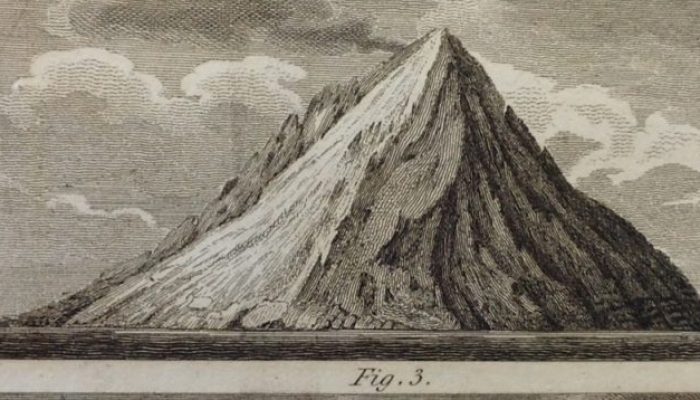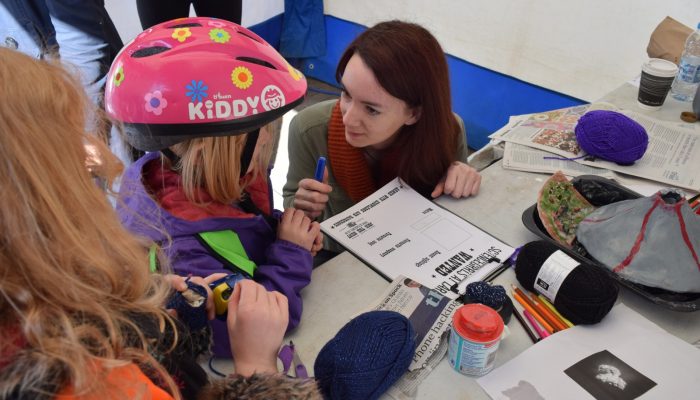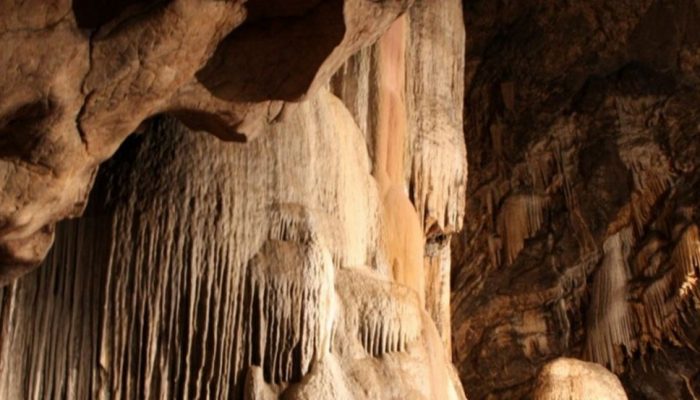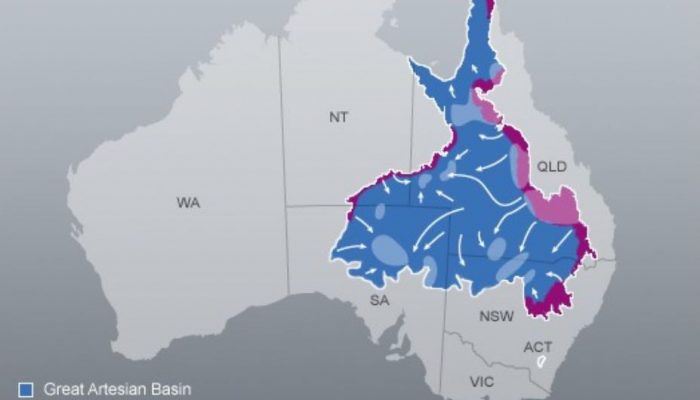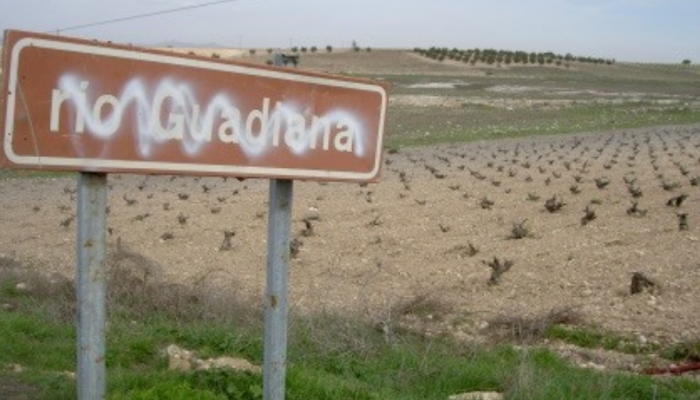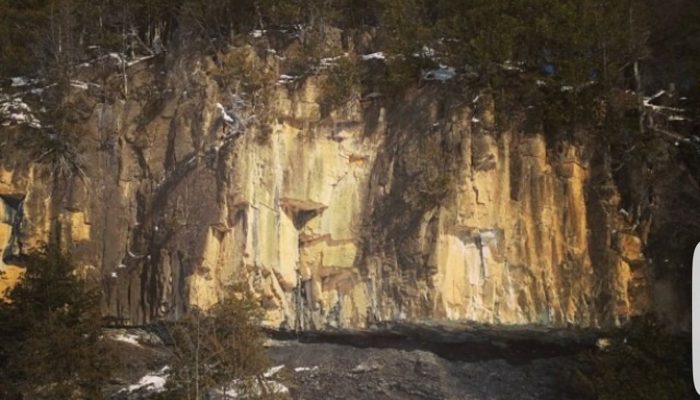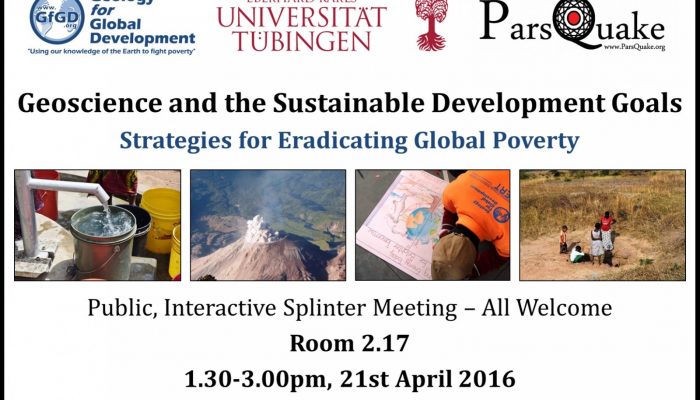One of the delights of talking to children of primary school age is their disarming ability to ask really simple questions that demand straightforward answers, but leave you struggling to throw your academic caution to the wind. Even with the questions of the biggest, the smallest, the oldest and the youngest there are still different ways of (over)interpreting the question, that can leave you flo ...[Read More]
Geology Jenga
Geoscience outreach- why it matters and how to get involved
This post is brought to you by Natasha Dowey, a dear friend and a volcanologist turned petroleum geologist. Just like us, Natasha has a passion for outreach. In this post she explains why it matters and a number of ways you can get involved. The importance of communication in geoscience is becoming ever more widely recognised. Researchers are being encouraged to step out of their comfort zones, lo ...[Read More]
WaterUnderground
What caves can teach us about climate, past and present
Authored by: Gabriel C Rau, Associate Lecturer in Groundwater Hydrology at UNSW, Australia Andy Baker, Director of the Connected Waters Initiative Research Centre at UNSW, Australia Mark Cuthbert, Research Fellow in Hydrogeology at the University of Birmingham, UK Martin Sogaard Andersen, Senior Lecturer at UNSW, Australia Have you ever enjoyed the cool refuge that an underground cave offers from ...[Read More]
Geology Jenga
Media skills for scientists – how to get them!
I certainly don’t need to write at any length about the fact I think it is crucial that scientists communicate their research with the public. Over the summer we’ll be sharing a few posts on this very subject. To get the ball rolling I thought I’d focus on one aspect of science communication (#scicomm): how to get your research out there to the media, be it written press, radio o ...[Read More]
WaterUnderground
Protecting springs from groundwater extraction: is a ‘drawdown trigger’ a sensible strategy?
By Matthew Currell – Senior Lecturer at RMIT University Springs, some of which have been flowing for hundreds of thousands of years, have been disappearing in Australia due to human water use over the past century. Following a hotly contested court case, Australia’s Environment Minister imposed a 20cm ‘drawdown limit’ at a set of springs, to protect them from a proposed coal mine. However, this ig ...[Read More]
WaterUnderground
Human Drought?
By Anne Van Loon – a water science lecturer at the University of Birmingham Recently I published a commentary in Nature Geoscience with the title ‘Drought in the Anthropocene’. In that commentary, my co-authors and I argued that in the current human-dominated world, we cannot study and manage natural drought processes separately from human influences on the water system like water abstraction, dam ...[Read More]
WaterUnderground
One hell of a great groundwater textbook now available free
‘Groundwater’ the seminar text book from Freeze and Cheery (1979) is free in pdf now…just follow the links here. This text book is almost as old as I am and important parts of modern hydrogeology are rusty or non-existent (like hydroecology amongst other topics) but it is still lucidly written and useful. I routinely send students to read chapters so I am happy that it is now available free. Kudo ...[Read More]
WaterUnderground
The new and exciting face of waterunderground.org
by Tom Gleeson I started waterunderground.org a few years ago as my personal groundwater nerd blog with the odd guest post written by others. Since I love working with others, I thought it would be more fun, and more interesting for readers, to expand the number of voices regularly posting. So here is the new face of the blog… What is the new blog all about? Written by a global collective of ...[Read More]
WaterUnderground
Just in case you weren’t sure…groundwater flow around a fault zone is complex!
By Erin Mundy – a plain language summary of part of her Masters thesis Groundwater is the water that collects underground in pores and cracks in the rock. Understanding, protecting and sustaining groundwater flow is critical because over two billion people drink groundwater every day. The flow of groundwater can be impacted by geologic structures, such as fractures and faults. A fracture is ...[Read More]
Geology for Global Development
#EGU16: Geoscience and the Sustainable Development Goals
At #EGU16? On Thursday we’ll be partnering with Parsquake and academics from the University of Tübingen to host an interactive, public splinter meeting on “Geoscience and the Sustainable Development Goals“! We’ll be posting resources from the meeting on our website after the event.

